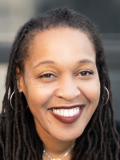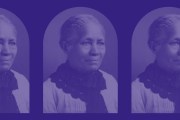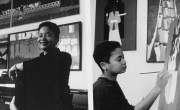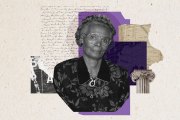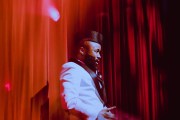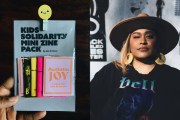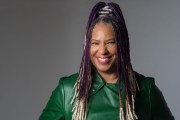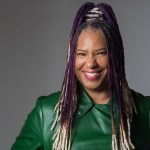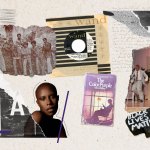This Black History Month, we’re telling the untold stories of women, women of color and LGBTQ+ people. Subscribe to our daily newsletter. For more of this month’s coverage, follow The 19th on Instagram.
The official theme for this year’s Black History Month is African Americans and the Arts. As a nonprofit newsroom dedicated to gender, politics and policy, The 19th probably isn’t the first publication you think of when you consider the arts or arts coverage.
But if you take an expansive view of the arts, and their impact on every aspect of our lives, themes emerge that are at the heart of who we are as a newsroom: art as resistance, as representation, as a means to document our struggles for equity and justice.
This Black History Month, our coverage will explore the ways that African-American arts show up in Black culture and the larger, evolving American story.
This page will be updated with our coverage throughout the month of February.
The 19th staff reflects on Black History Month
‘Art is all around us’
The theme of this year’s celebration, “African Americans and the Arts,” evokes memories of our families, our childhoods and the contributions Black people have made to American culture.
-
Read The Full Story:
-
Read The Full Story: ‘Art is all around us’: What this Black History Month means to The 19th staff
What Frances Ellen Watkins Harper means to our fellows
More than 110 years after her passing, Harper’s writing and life’s work continue to inspire a new generation of journalists — the 19th fellows whose work bears her name.
-
Read The Full Story:
Inspiring HBCU alumni
Three of our fellows profile the journalists, artists and actors who have left a mark on the culture, and on the current and former students following in their footsteps.
-
Read The Full Story:
-
Read The Full Story: The 19th’s fellows pay tribute to the artistic HBCU alumni who inspire them
Our cherished rituals
The 19th’s creative director, Clarice Bajkowski, shares the importance of passing down Black culinary traditions, offering a glimpse into preserving her grandmother’s wealth of cultural knowledge.
-
Read The Full Story:
-
Read The Full Story: From my grandma’s hands: What collard greens taught me about her extraordinary life
Contributions to our culture
Recommended reading
Roxane Gay, Dawnshaeé Reid and Raquel Willis share why Black artists are important, the impact of Black literature and the books they just can’t put down.
-
Read The Full Story:
-
Read The Full Story: Black writers share their favorite books to honor Black History Month
Liberation and expression through drag
LGBTQ+ Black Americans pioneered drag as a source of freedom. For King Molasses, discovering drag was a crucial part of feeling free.
-
Read The Full Story:
-
Read The Full Story: A Black drag king shares their story of liberation and expression
Mending ‘crowns’
Half of Black women will experience hair loss during their lives. Bridget Alem, owner of Lady B Salon in Dallas, Texas, is breaking the stigma and closing gaps to care through education and empathy.
-
Read The Full Story:
Centering disability in Black History conversations
‘Supernova Momma’ highlights Black disabled pioneers
Natasha Nelson uses her company, Supernova Momma, to teach families how to incorporate positive discipline into households with disabled children. She also uses her platform on social media to highlight the intersectional experience of being a Black disabled person. Most recently, she’s taken to X, formerly known as Twitter, to create a campaign called Black Disability History Month.
-
Read The Full Story:
Using art to combat injustice
Jen White-Johnson was always an artist, but her son inspired her to break free — furthering her mission of using art to combat injustice.
-
Read The Full Story:
Increasing equity
At HBCUs
For the first time in university history, the Sophisticated Ladies dance team members are now eligible for performance-based scholarships. Dance teams at Tennessee State University and other HBCUs are an integral part of the band’s performance but have historically lacked the same funding.
-
Read The Full Story:
-
Read The Full Story: For the first time, dancers at this HBCU are eligible for scholarships
In film and television
Ayoka Chenzira had already worked in film for 40 years, but a call from Ava DuVernay opened what was once a closed, heavily guarded door to new forms of storytelling.
-
Read The Full Story:
In the construction industry
Women of color represent 13 percent of the population in Rochester, Minnesota, but only 1 percent of construction jobs. The mayor of Rochester, Minnesota, is piloting an initiative to close the industry’s equity gap for women through offering training and child care.
-
Read The Full Story:
-
Read The Full Story: Less than 1 percent of construction jobs go to women of color in this city

